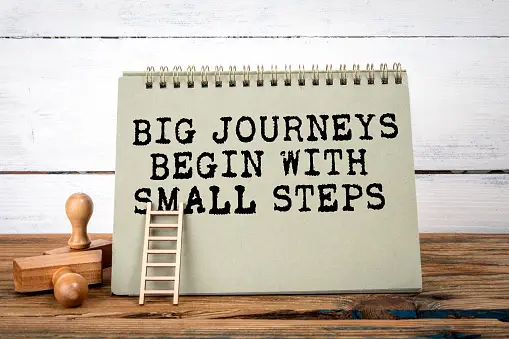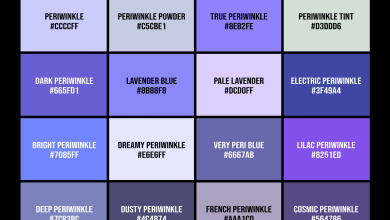The Art of Creating Pleasant Memories: A Lasting Impact on Our Lives
The Art of Creating Pleasant Memories: A Lasting Impact on Our Lives

Introduction
Our lives are tied together by our memories, which mold our experiences and influence how we feel. Of the memories we possess, certain ones are truly enjoyable and ultimately end up being treasured parts of our narratives. These enjoyable recollections, often described as “appealing to think about as memories,” have a specific location in our minds and thoughts. This article explores the importance of making and keeping these kinds of memories, as well as the way we can deliberately promote them and how they impact our overall well-being.
The Value of Good Memories
Pleasant recollections have a significant influence on our emotional and mental well-being; they are not only fleeting bursts of pleasure. These memories offer solace, happiness, and courage in trying circumstances. They put out the qualities in our lives and help us maintain a positive outlook.
Benefits at an Emotional Basis

Enjoyable memories can elicit feelings of joy, fulfillment, and nostalgia. Our state of mind and general sense of well-being may be enhanced through these emotions. Emotional security and comforting memories function as emotional anchors in moments of great difficulty. They reminisce over the joyful moments we’ve had and give us hope that there will be more to come. The beneficial emotional boost that results from thinking about past times of joy may improve mental health by reducing stress, anxiety, and symptoms of depression.
Benefits for Cognitive Functioning
From the perspective of cognition, pleasant recollections play a role in forming our perceptions of self and identity. They assist us in weaving up the occurrences of the past into an integrated narrative of our lives. Since it gives the tale a purpose, narrative uniformity is essential for mental health and meaning. Furthermore, pleasant memories can enhance cognitive functioning by improving focus, problem-solving skills, and creativity. By reflecting on positive past experiences, we can draw on these memories to inspire confidence and motivation in our current and future endeavors.
The Science and Memory Formation
We can deliberately create happier memories if we possess a better understanding of how recollections are formed and preserved. A complex interaction among neural processes, feelings, and sensory inputs leads to the development of memories.
The Hippocampus’s Role
An essential component of the brain in memory formation is known as the hippocampus. The hippocampus formation helps in the storage of new or significant emotional experiences, turning them into long-term memory. An experience’s psychological effect may speed down the process of encoding while enhancing recall durability. The hippocampus works to strengthen memory associated with significant feelings by collaborating with various regions of the brain, notably the area known as the amygdala, which manages emotions.
Neurotransmitters in Relationship to Memory
In addition, transmitters like dopamine and serotonin are essential for the growth of memory. These chemicals circulate in reaction to positive experiences, which strengthens the brain connections that contribute to memory. Due to this, joyful or significant recollections are often more pleasant to think about and easier to recall. Dopamine has an essential part in the strengthening of positive feelings since it is specifically related to reward and pleasure. Dopamine can improve the general sense of well-being associated with happy memories and help in controlling one’s mood.
Tips for Making Unforgettable Events
Creating pleasant recollections involves a lot more than luck—it involves careful attention to how we inhabit and view our surroundings. These methods will assist you in generating better memories.
Be here and mindful.
We might like events deeper when we are present in the moment. Deep breathing along with various methods of mindfulness may assist us in staying focused on the present moment, which may render experiences brighter and more memorable. We can make memorable and lasting encounters by shutting off distractions and engaging with the world around us. By developing understanding, we can additionally learn to enjoy everyday pleasures, which add together to create a bank of pleasant recollections.
Take Part in Significant Activities
Creating forever enjoyable memories can result from participating in things that leave you feeling contented and proud of yourself. Participating in activities that improve our lives and provide us with priceless memories includes traveling to new places, interacting with loved ones, and pursuing hobbies. Good activities often involve elements of novelty and challenge, which can stimulate our minds and emotions, making the experiences more memorable. Volunteering, learning new skills, and participating in community events are other ways to create fulfilling and pleasant memories.
Capturing Experiences
Creating scrapbooks, writing, or taking photos are methods to capture moments of joy. These item keepsakes allow us to step back and relive our most cherished experiences, reinforcing the joyful feelings associated with them. Keeping records of events additionally provides us an opportunity to share memories with others and strengthens what they say in our stories. Reviewing these records can be a source of motivation and thankfulness, keeping us rooted in the good events in our lives.
Looking Back and Sharing
We can boost the effect of our pleasant recollections by reflecting on them and sharing them with others. Remembering happy recollections with family and friends not only helps preserve their memory but also promotes relationships and mutual happiness. Reminiscing and sharing tales can foster a feeling of belonging, enhancing our overall well-being. Group activities that involve collective memory-making, such as family gatherings, reunions, and celebrations, can also contribute to a rich tapestry of pleasant memories that are cherished by all involved.
Conclusion
In the end, happy memories are invaluable possessions that enhance our lives as well as our general well-being. With knowledge of these recollections and the use of methods that produce and sustain them, we may improve our mental stamina and happiness. The significant practices that could assist us in creating a life full of joyful recollections and making sure that our past continues to give us joy and act as an inspiration for tomorrow are mindfulness, meaningful pursuits, capturing, and reflection. We can build a bank of pleasant recollections that promote our emotional and mental health and provide us peace and joy for the remainder of our lives by engaging fully in the procedure of generating memories while taking action to preserve these memorable moments.



